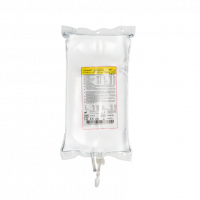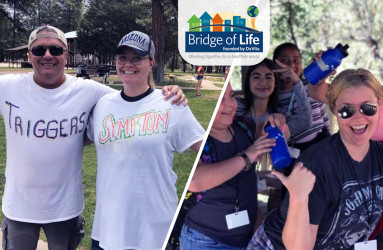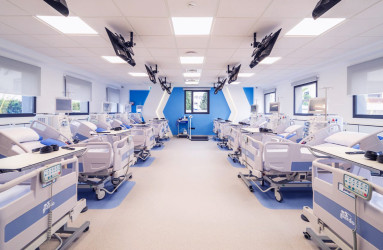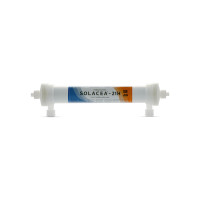
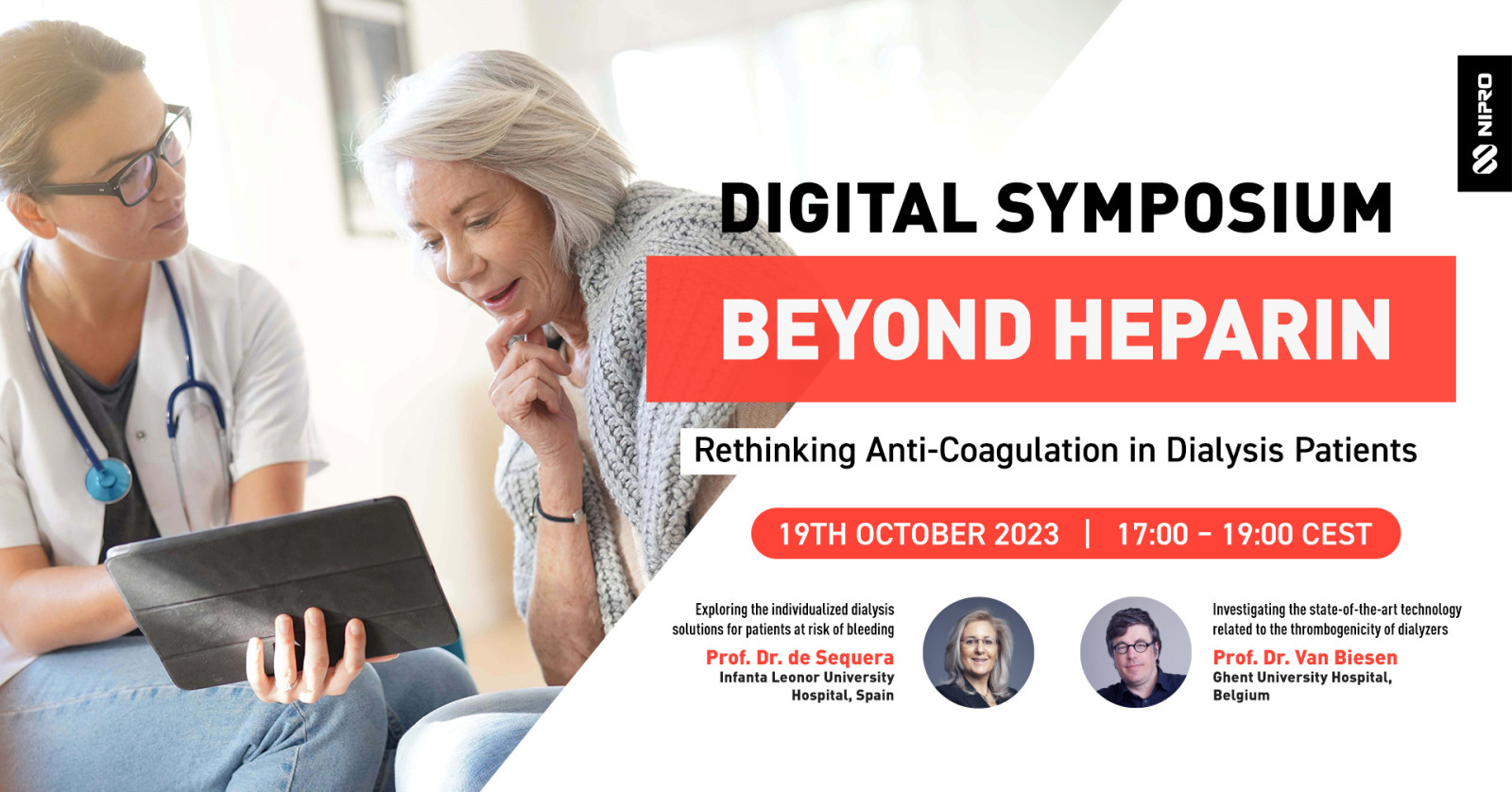
Did you miss our recent digital symposium? Or would you like to watch it again?
Yes, I want to watch the recording, but do not have an account created yet.
I already have my account created. Take me to the recordings please.
Patients undergoing dialysis often rely on heparin as an essential anti-coagulant during their treatments. However, one of the challenges in dialysis care is that heparin is not always suitable for patients at risk of bleeding. How can this be overcome?
To address the complexity of this issue and to acknowledge that getting the combination of the right dialysis solution and prescribing the right dose of heparin for patients is quite challenging – plus, that the practice varies between centers – we organized a digital symposium aimed at nephrologists on 19 October 2023. The guest speakers were leading experts in the field - Prof. Dr. De Sequera from the Infanta Leonor University Hospital in Spain and Prof. Dr. Van Biesen from Ghent University Hospital in Belgium.
Under the umbrella topic of “Beyond Heparin: Rethinking Anti-Coagulation in Dialysis Patients”, Prof. Dr. De Sequera began the symposium by presenting “Exploring the individualized dialysis solutions for patients at risk of bleeding”, while Prof. Dr. Van Biesen spoke on the topic of “Investigating the state-of-the-art technology related to the thrombogenicity of dialyzers”.
"In our interactions with nephrologists, the question of managing patients at risk of bleeding is a recurring theme. As a company specializing in renal care, we place great importance on disseminating the latest research findings and techniques in the field related to this topic. Furthermore, we aim to provide practical insights on how this knowledge translates into day-to-day clinical practice – something that we have managed to do in this symposium thanks to our two experts."

The highlights of the presentations included:
- The evolution of dialysis practice over the years, from a “one size fits all” model to a more individualized approach accommodating the different needs of different dialysis patients.
- A special focus on patients with contraindications for heparin. The recommended approach involves the use of a low thrombogenic dialyzer and a citrate-based dialysate to ensure their safety and effective treatment.
- Findings from the SOLFA study which emphasized the performance of Nipro’s cellulose triacetate membrane - Solacea, with reduced anti-coagulation. The study confirmed that Solacea exhibited significantly lower clotting rates when compared to synthetic dialyzers.
- The state-of-the-art technology of micro-CT scanning which demonstrates the substantial reduction in clotting observed with Solacea compared to a polysulfone dialyzer with reduced anti-coagulation. Of particular significance is that Solacea capacity to remove middle molecular toxins is not compromised.
- The advantages of Citrasate, Nipro’s citrate-based dialysate. Associated with better dialysis outcomes for patients at risk of bleeding, it is also offered in multiple formulas for various patient needs.
The conclusion of the two presentations were that in line with the shift towards patient-centric care in dialysis, the combined solution of a low thrombogenic dialyzer and a citrate-based dialysate is specifically designed for patients at risk of bleeding who have coagulation issues. This approach which goes beyond heparin, reflects a commitment to improving patient well-being and safety in dialysis care.
To end the symposium, a live Q&A session was held with both speakers, providing attendees the opportunity to be actively engaged in in-depth discussions and an exchange of knowledge.
"We could really see the audience's engagement by the substantial number of questions raised. Some attendees asked how the speakers manage things at their centers, focusing on the practicalities of the treatment. Others were more interested in the scientific side to learn from the experts. We're also happy to hear that the presentations were well-received."

Stay connected with us for more upcoming seminars.
